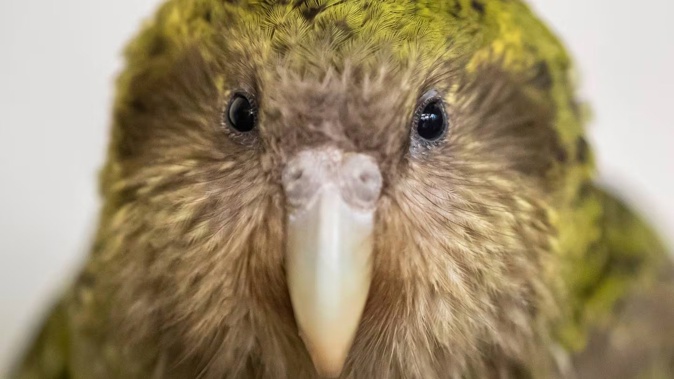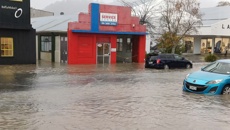
It helped New Zealand squash Covid-19 in the first years of the pandemic – and now our growing genomics expertise has much more to offer the rest of the world, three visiting international experts say.
Since researchers began putting together the full genetic jigsaw of a human being - our genome - more than three decades ago, genomics has taken science to extraordinary places.
We’re now using it to decode the DNA of cancer cells and a world of other diseases, to pinpoint plant genes that make for better crops and to unlock new leaps in synthetic biology.
For Kiwis, it was how scientists steered genomic sequencing against Covid-19 during the elimination era – rapidly linking fresh cases to known clusters or new outbreaks – that perhaps best demonstrated its power.
Before that, however, New Zealand had already gained global attention by mapping the genome of every remaining kākāpō - yielding new genetic insights that have helped pull the endangered parrot back from the brink, while offering a smart template for conservation efforts worldwide.
Professor Nick Goldman – a respected University of Cambridge senior scientist, and group leader with the European Bioinformatics Institute – saw this space as one where New Zealand could continue to make a major difference elsewhere.
“The ability to use genomics to think about how you look after the environment ... is something that can be a real contribution, and there’s clearly a lot of opportunities here to do that,” said Goldman, who’s been attending Genomics Aotearoa’s annual meeting in Dunedin.
Goldman saw New Zealand, with its unusually high rate of natural endemism, and its small, tight-knit genomics community, as a conservation “case study” for the rest of the world.
/cloudfront-ap-southeast-2.images.arcpublishing.com/nzme/27B42KRCE4Z4243LS3GS3SLSOI.jpg)
A machine sorts positive Covid-19 samples for genome testing at ESR's Covid-19 testing facility in Porirua. Photo / Dom Thomas/RNZ
Species that scientists have already genomically sequenced, or soon plan to, range from kiwi, takahe, tuatara hihi and Antipodean albatrosses, to rewarewa, swamp maire, Canterbury mudfish/kowaro and Maui’s dolphins.
They’re also using it to understand pest species like the German wasp, ship rat and stoat – and just last month published the first full genome of the brushtail possum.
Another visiting world expert, Andrew Gilbert, said local genomics capability built up to conserve our own species could be easily applied to other big challenges, like biosecurity, antibiotic resistance and agricultural productivity.
Such examples here to date include efforts to predict the invasive potential of pests like the big-risk brown marmorated stink bug, improve the fruit quality of blueberry and explore the genetic traits of different sheep breeds.
“You need to develop your own capability for your own values, and of course, that becomes valuable across other sectors and ultimately exported elsewhere,” said Gilbert, who as chief executive of BioPlatforms Australia, oversees the allocation of some $300 million in research funding.
On the human health front, Genomics Aotearoa projects have been investigating the biology of tumours, the genetic drivers of rare conditions and the nasty Strep A bacteria, and genomic variations in Maori and Pacific populations.
That was vital for delivering better outcomes for groups that have long faced health inequities – while helping fill in important gaps in global genomic metadata that’s often used to explore new drugs and treatments.
Professor Elinor Karlsson, of the Harvard University and MIT-partnered Broad Institute, pointed to polygenic risk scores that are increasingly used to measure disease risk based on genes.
“They don’t work as well if you’re not a white European, because the data is not there,” Karlsson said.
“Going forward, New Zealand can play a real role in making sure their populations are being considered in these big projects, and that their interests and health equity are being addressed.”
Asked where they saw the biggest global advances in genomics still to come, the three experts singled out areas like imaging tech to peer inside living cells, or better understanding precise changes in human DNA, to find whether they’re correlated to, or actually causing, diseases.
/cloudfront-ap-southeast-2.images.arcpublishing.com/nzme/3FO3VNIQHB6RJJMV5CV4JI3744.jpg)
In 2010, Stanford University professor Stephen Quake became the first person in the world to be prescribed a medicine based on an analysis of his genome.
“We’ve gone from sequencing the genome of an individual, which is basically the DNA they inherit from their parents, to trying to sequence every single cell in the body,” Karlsson said.
“And I think the biggest challenge we’re going to face with this is honestly just people; those who have the skills to actually analyse this data are in incredibly short supply right now.”
Gilbert figured we were only at the beginning of unlocking the potential of tech already starting to deliver patients precision medicine based on their own genomes.
“We’re probably only in the first 1 per cent of a journey that’s been happening forever, apparently, but really, just 15 years,” he said.
“It’s still brand-new technology, and the domain of deep expertise in chemistry, biology, mathematics and data science, but, with the advent of machine learning and AI, I think it’ll become a day-to-day utility for non-experts too.”
Genomics Aotearoa director Professor Peter Dearden considered the path ahead for genomics in New Zealand, where health and environment goals would need to come in step with tackling inequity, honouring the principles of Te Tiriti and recognising our place in the Pacific.
“The impacts of overpopulation, globalisation and increasing inequity are international problems, but ones that we will need to develop unique solutions for in Aotearoa.”
Jamie Morton is a specialist in science and environmental reporting. He joined the Herald in 2011 and writes about everything from conservation and climate change to natural hazards and new technology.
Take your Radio, Podcasts and Music with you









